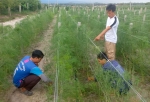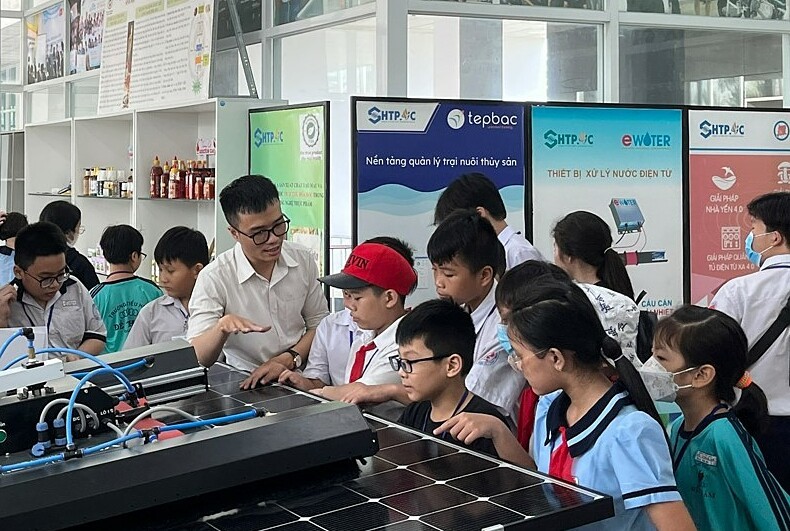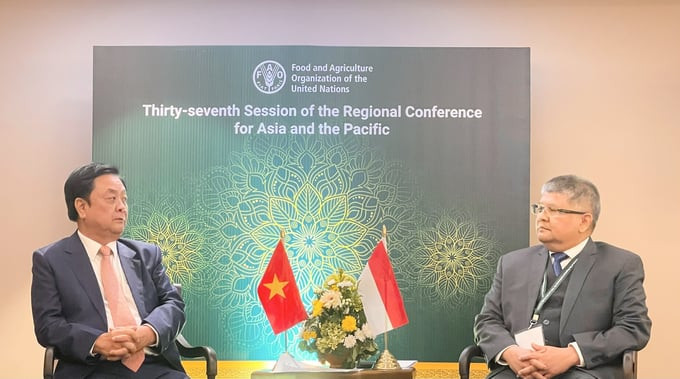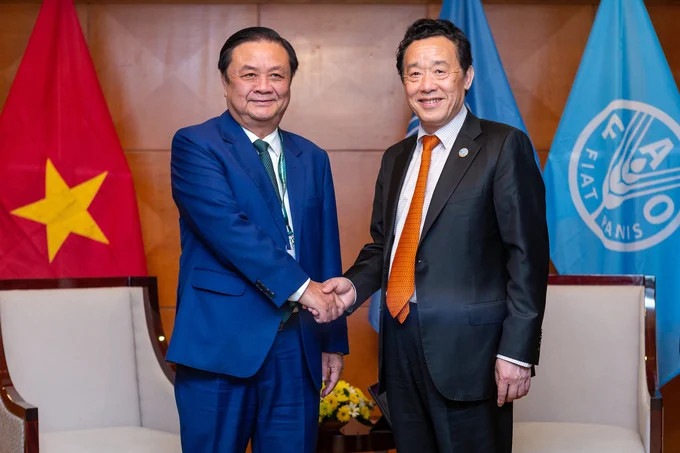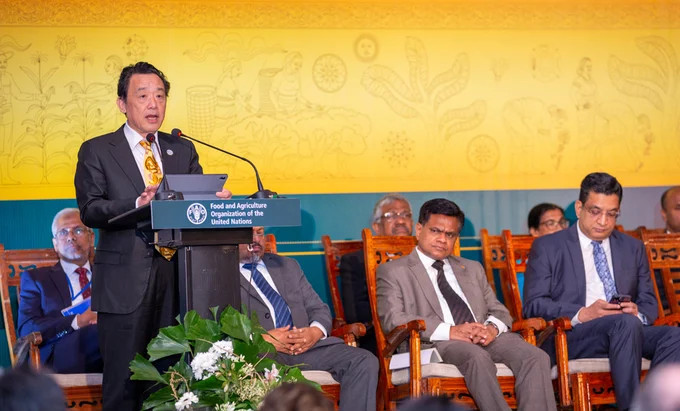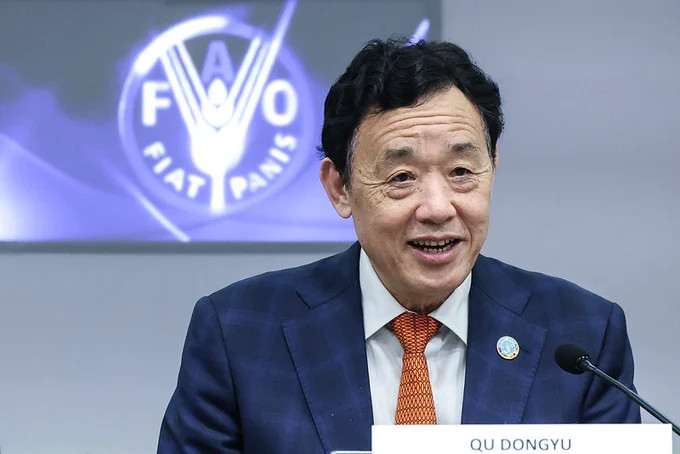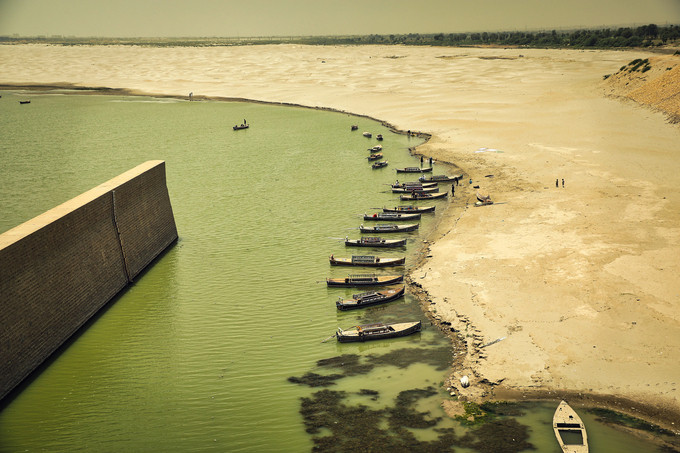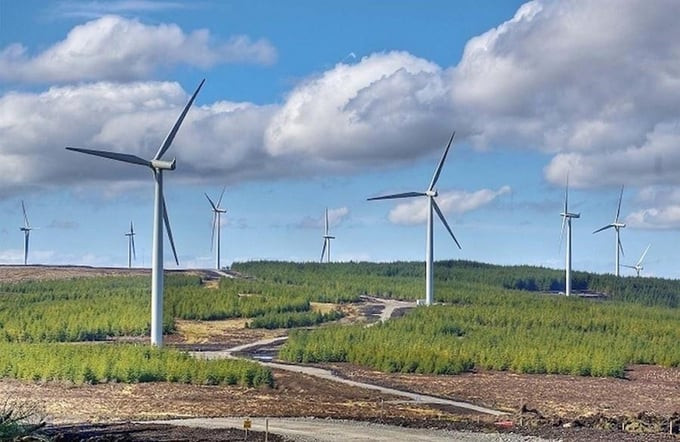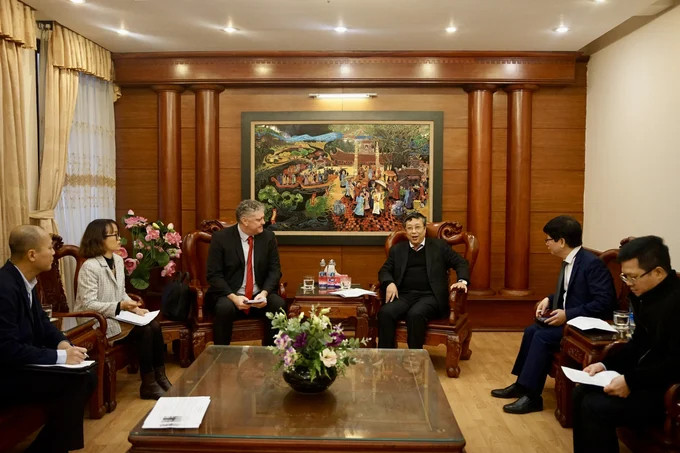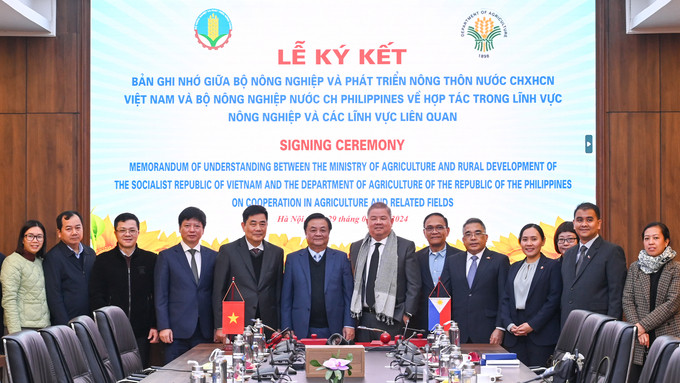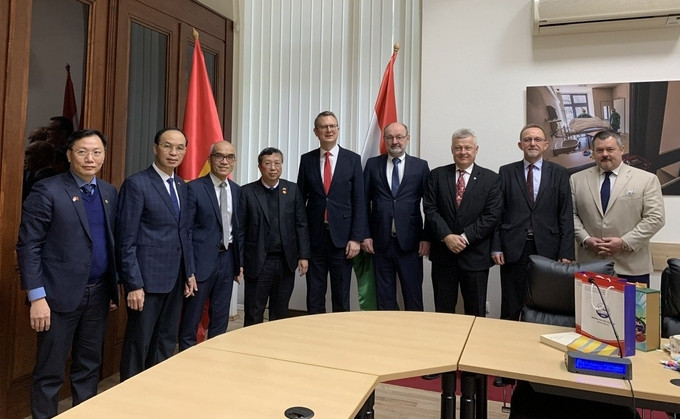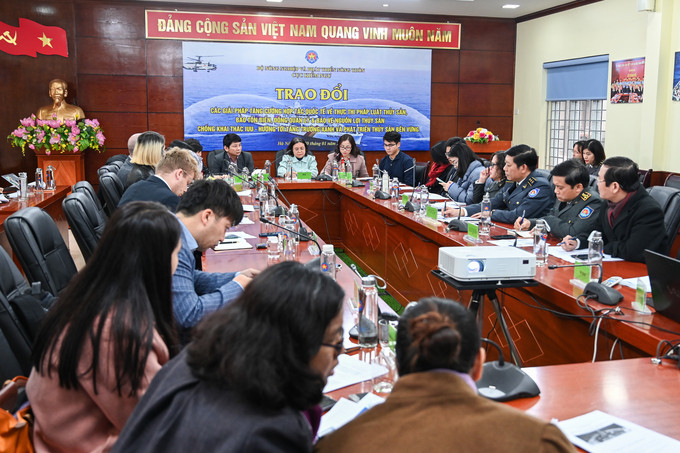
Discussion session between the Department of Fisheries Inspection (Ministry of Agriculture and Rural Development) and international partners on sustainable fisheries development on January 30
A discussion session took place on January 30, bringing together the Department of Fisheries Surveillance and international partners to explore "Solutions for Strengthening International Cooperation on Fisheries Law Enforcement, Marine Conservation, Co-management & Protection of Aquatic Resources, Combating IUU Exploitation - Towards Green Growth and Sustainable Fisheries Development." The objective of the meeting was to exchange information and propose collaborative activities for the future, particularly in the context where efforts to combat Illegal, Unreported, and Unregulated (IUU) fishing have fallen short of expected effectiveness.
In response to the Vietnamese Government's recent directive to extend the peak period until April 2024 for the removal of the European 'yellow card' warning, recommended measures involve focused concentration, resource mobilization, and the synchronized implementation of anti-IUU fishing tasks, aligning with the guidance from the Government of Vietnam.
Simultaneously, the emphasis is placed on adhering to several regulations and recommendations outlined by the European Commission (EC). Additionally, promoting the application of information technology and ensuring transparent, legal control of aquatic resources emerge as critical factors in guaranteeing sustainable development for Vietnam's fisheries industry.
2024 is the year of co-management
Nguyen Quang Hung, Director of the Fisheries Surveillance Department, underscored the significance of engaging with the international community, stating, "This forum provides a valuable opportunity to enhance cooperation and coordination between domestic and foreign entities. The Fisheries Department aims to establish close and meaningful connections among relevant stakeholders, thereby enhancing the efficiency of fisheries law enforcement. With international backing, we aim to cultivate a team of experts equipped with equal skills and knowledge in sustainable fisheries."
Director Nguyen Quang Hung highlighted that implementing specific models, such as the Regeneration Fund, the Fisheries Resources Protection Fund, and the co-management model to support coastal communities, will create conducive conditions for green growth and sustainable development.
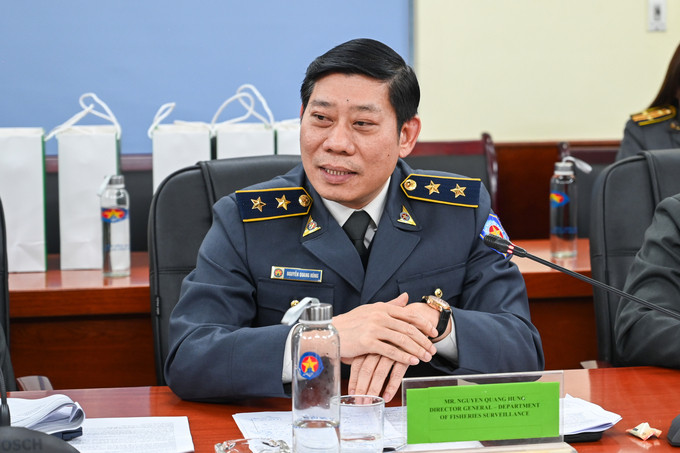
Mr. Nguyen Quang Hung, Director of the Department of Fisheries Inspection (Ministry of Agriculture and Rural Development) emphasized international cooperation's importance in developing sustainable fisheries.
Vietnam actively participates in international forums addressing IUU prevention and the protection of aquatic resources. With support from ASEAN tools and the Food and Agriculture Organization of the United Nations (FAO), the Department of Fisheries Surveillance promptly updates information and measures to combat IUU fishing, positively contributing to global efforts.
In 2016, the FAO Agreement on Fisheries Law Enforcement (PSMA) laid a robust foundation for effective cooperation and training. Vietnam joined this agreement in 2018, enhancing monitoring and control capabilities at seaports, thus preventing importing products with unclear origins. The anti-IUU fishing media campaign and training through the RPOA-IUU cooperation mechanism represent tangible steps to raise public awareness and train professional personnel.
Furthermore, the approval of law enforcement equipment projects funded by Japan facilitates the realization of preventive measures and strengthens the law enforcement system. Participation in and leadership of the United Nations Migratory Fish Stocks Agreement (UNFSA) ensure the effective management of migratory fish and the protection of aquatic resources.
Preventing IUU fishing is a global responsibility," emphasized Ms. Nguyen Thi Trang Nhung, Head of the Science Technology - International Cooperation Department at the Fisheries Surveillance Department. She stressed the significance of cooperation to expand information exchange for law enforcement and combat IUU fishing. Countries are encouraged to utilize the MDA (marine domain awareness) approach for information sources, establishing a bilateral information exchange mechanism. This includes effectively implementing signed hotlines to enhance flexibility and speed in information exchange.
Ms. Nhung urged partners to collaborate closely in implementing and promoting the PSMA Agreement, with a focus on controlling the legality of products originating from container exploitation. The aim is to ensure that imported aquatic products fully comply with regulations and traceability requirements.
In addition to the core task of preventing IUU fishing, in 2024, the Fisheries Inspection Department will prioritize the implementation of the Plan for protecting and exploiting aquatic resources. The goal is to expand and establish new marine protected areas, and aquatic resource protection areas and restore ecosystems by 2030, ensuring that marine and coastal areas reach 6% of the region's natural area in the Vietnam Sea.
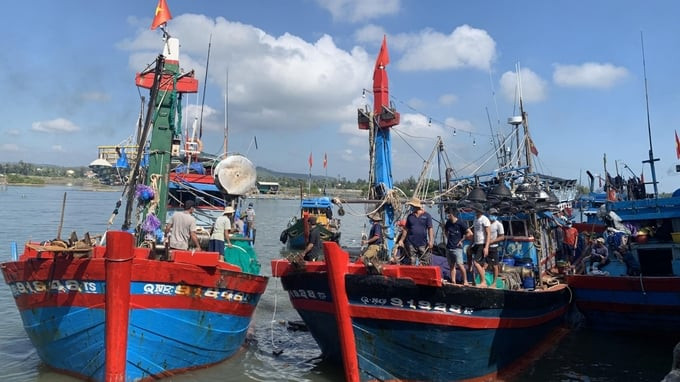
Effectively exploiting aquatic resources and preventing IUU fishing are two key tasks for the Fisheries Inspection Department in 2024
The next direction is to develop the value of marine ecosystems and evaluate management effectiveness through a set of indicators. Technical and economic norms on investment in Vietnam's marine protected areas will help optimize resource use and ensure sustainability.
Furthermore, implementing the US Marine Mammal Protection Act (MMPA) will ensure that the management and conservation of Vietnam's marine mammals adhere to international standards based on commitments to maintaining the ecological balance of the marine environment.
Response from the international community
Representatives from embassies and international organizations who attended the meeting expressed high regard for the proposals put forth by the Fisheries Inspection Department in the areas of law enforcement, conservation, and the development of aquatic resources. They demonstrated a clear awareness of the pivotal tasks facing the Department in 2024.
In particular, international representatives welcomed the strategic direction outlined by the Department of Fisheries Surveillance, and more broadly, the Ministry of Agriculture and Rural Development, focusing on co-management.
Ms. Nguyen Thu Hue, the Director of the Research Center for Marine Conservation and Community Development (MCD), stated, "Throughout our 20-year journey with the fisheries industry, we have emphasized the importance of co-management. From MCD's experience, we believe this approach effectively facilitates negotiations, resource access, and promotes marine conservation." During discussions with the Fisheries Surveillance Department, she hoped that international representatives would expand their collaborative network to include non-governmental organizations such as MCD.
Representatives from the Japanese Embassy conveyed that Japan is actively collaborating with Vietnam to establish a specialized aid project for the four Fisheries Surveillance ships sponsored by Japan to support patrol activities. However, due to budget constraints, they urged international partners to consider and incorporate this Japanese initiative into related capacity-building support packages.
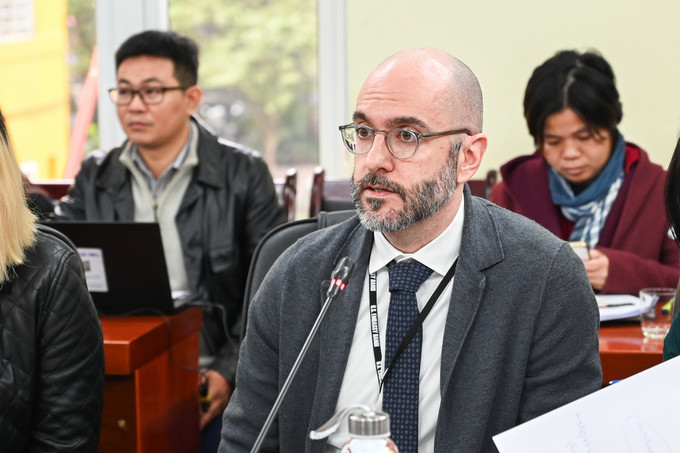
Representative of the US Embassy in Vietnam, Ryan McKean, expressed a desire to collaborate in enhancing the capacity to collect, process, and manage aquaculture data.
Mr. Ryan E. McKean, the INL Program Director and Representative of the US Embassy in Hanoi, emphasized the significance of database management and expressed a desire to collaborate on enhancing the capacity for fisheries law enforcement.
"A robust understanding of metrics and data collection will enable us to measure the success of programs and objectives and develop sustainable plans for the development of aquatic resources. We recognize that data collection and result measurement are not only the responsibility of the Department but also essential for the entire community," Mr. McKean highlighted.
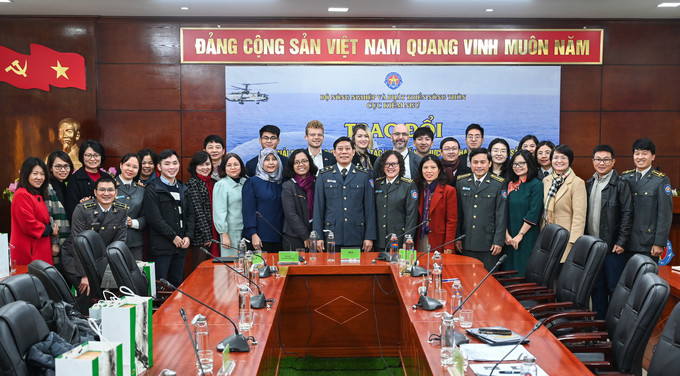
The Department of Fisheries Surveillance aspires to foster connections between domestic and international partners.
Translated by Quynh Chi






